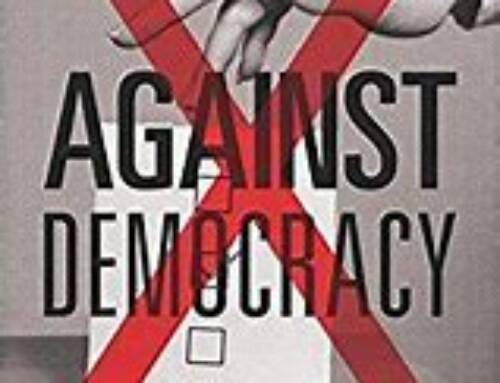Today’s post comes from guest author Leonard Jernigan, from The Jernigan Law Firm.
A wise person once told me: “Don’t worry about doing things right; just do the right thing.” Have you ever wanted to do the right thing but didn’t because you might lose your job? That’s a gut-wrenching tension. Here’s how this tension works in theory and how the legislature has made it a reality for judges in workers’’ compensation claims starting in 2015.
Many years ago, as a relatively young lawyer, I experienced what losing independence as a judge looks like. I was hired by a state agency on a one-time contract basis to act as a hearing officer.
The case involved a dispute between a public nonprofit entity and a private corporation. The hearing lasted a full week, with expert testimony and many witnesses. I ruled in favor of the private corporation, believing it would provide better services and be more efficient. Afterward, it became quite apparent the agency did not like that outcome. It quickly reversed my decision, and the agency got the outcome it wanted. I was never hired again. I got the message loud and clear.
My livelihood was not dependent on this type of employment, but I often thought, “What if I were an employee of that agency? Would I be calling balls and strikes fairly and doing the right thing, or would I start to favor one team over the other to make sure I kept my job?” That thought disturbed me then, and it disturbs me now.
On July 26, the legislature passed House Bill 74, a 58-page bill that has not yet been signed into law by Gov. Pat McCrory. At the bottom of the last page, a provision was inserted that removed the independence of judges at the N.C. Industrial Commission, effective July 1, 2015. If you have an accident or develop an occupational disease on the job, these judges (called Deputy Commissioners) hear your case and decide whether you are entitled to partial lost wages and medical benefits until you get back to work.
Most of these judges are competent and dedicated public servants, but if any of these Deputy Commissioners are not performing up to acceptable standards, the State Personnel System has a method for firing these employees. HB 74 has removed them from this system, and in 2015 they can be fired for any reason, without any meaningful review or recourse. True and unvarnished independence will evaporate.
A new administration is totally justified in taking a close look at performance levels and taking corrective action, if necessary. In fact, such oversight is welcome. However, impartiality and independence of these judges are absolutely crucial to the process. Without the protection of the State Personnel System, these judges would be subject to the pressure of political winds (real or imagined but always present).
Unlike many other countries, we are a nation of laws (as President Nixon found out), and respect for our legal system is a foundation stone of this country. We should make no law, take no action and support no policy that would put a crack in that foundation.
Unfortunately, HB 74 has done just that.
I am confident that some legislators voted for this bill and did not appreciate the significance of it or that they were just following the leadership to get along. Will new Deputy Commissioners follow suit and do what has to be done just to get along (and keep their jobs, too)?
I wonder what people would do if their child were playing in a little league baseball game or a Friday night football game in which they knew the umpire or referee might lose his job if he made the wrong call against their opponent.
Would they do anything about it? The governor can. He can do the right thing. I hope he does.







